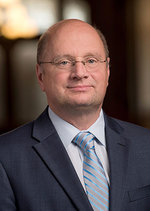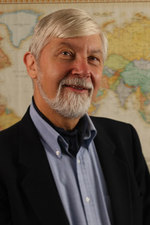The Norwegian Nobel Committee on Friday (Oct. 9) bestowed the Nobel Peace Prize on an alliance of four Tunisian civil society groups for their efforts to foster democracy in the nation that gave birth to the Arab Spring.
The quartet of groups consists of the Tunisian General Labour Union, the Tunisian Confederation of Industry, Trade and Handicrafts, the Tunisian Human Rights League and the Tunisian Order of Lawyers.
 R. Scott Appleby
R. Scott Appleby
Despite recent disruptions of violence, Tunisia remains the only beacon still shining in the wake of the Arab Spring, according to R. Scott Appleby, dean of the University of Notre Dame’s Keough School of Global Affairs.
“This is due in large part to the resilience of Tunisian civil society — the web of non-state, voluntary organizations and unions of workers, merchants, human rights advocates and lawyers dedicated to promoting democracy and religious and political pluralism,” Appleby says. “The Nobel Peace Prize committee is honoring the efforts of courageous, independent advocates for peace and its constituent elements (democracy, human rights, free speech and assembly) in the Middle East and beyond. These promoters of a civil society are a source of real hope in a world still beset by political oppression.”
 Peter Wallensteen
Peter Wallensteen
Peter Wallensteen, research professor of peace studies in Notre Dame’s Kroc Institute for International Peace Studies, part of the new Keough School, says, “It’s a surprising choice as the Nobel committee has had a tradition of highlighting work on nuclear disarmament on the decennials of the use of nuclear weapons in 1945. Thus in 2005, 1995 and 1985, the prize went to organizations, individuals or movements working for the reduction and elimination of nuclear weapons.
“With its broad base, it is likely that the quartet has contributed to reduce violence and assist in the promotion of democracy,” Wallensteen says. “In 2011, the prize was given to nonviolent activists from Yemen, Tawakkol Karman; in 2013, to the organization that was involved in chemical weapons disarmament in Syria, OPCW; so this is the third time that it highlights positive developments in the otherwise depressive currents in the Middle East after the first promising changes of the Arab Spring."
 Ebrahim Moosa
Ebrahim Moosa
The award confirms the world’s confidence that democratic governance in Arab-Islamic societies is both desirable and attainable, according to Ebrahim Moosa, professor of Islamic Studies in the Keough School.
“It boosts the confidence of democracy workers and peace activists throughout the region and beyond that stability and peaceful change carries more dividends in the long term than violence and dictatorship,” Moosa says. “The lesson learned from Tunisia’s slow but sure transition to democracy was this: It was achieved by local actors and not by foreign diplomatic and military interventions. This is the best and surest recipe for success that peace activists in Syria, Egypt, Libya, Iraq, Syria and Afghanistan will hopefully learn from.”
Contacts: R. Scott Appleby, Appleby.3@nd.edu; Peter Wallensteen, wallensteen.4@nd.edu; Ebrahim Moosa, emoosa1@nd.edu